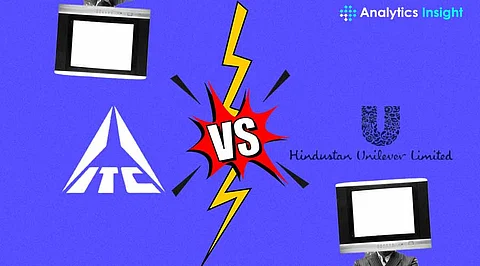

Hindustan Unilever Ltd (HUL) and ITC Ltd are two of the largest FMCG companies in India. The companies maintain powerful market positions yet follow different approaches for business models and developments, revenue generation as well as organizational growth. Those who plan to invest in FMCG sector companies use HUL and ITC for their long-term comparison.
HUL is a dominant player in the FMCG sector with a well-established brand portfolio, including Dove, Surf Excel and Lipton. The company benefits from its extensive distribution network and strong consumer loyalty. Its consistent focus on innovation and sustainability strengthens its market position.
Brand Recognition: Trusted household brands ensure steady revenue and strong market dominance.
Market Leadership: A leading FMCG company with products spanning home care, personal care, and food.
Strong Distribution: Strong presence in urban and rural markets ensures high penetration.
Innovation and Sustainability: New product development and sustainability initiatives enhance long-term growth prospects.
Despite its strengths, HUL faces several business challenges including price fluctuations of raw materials, consumer preference changes as well as competition from both national and international FMCG enterprises. Profit margins may also be affected by regulatory changes and economic downturns.
ITC establishes itself through its varied business framework connecting FMCG, tobacco, hotels and packaging. The primary cash flow for HUL's expansion originates from its tobacco operations while its FMCG segment shows gradual growth.
FMCG Growth: Expanding its food, personal care and home care segments to compete with industry leaders.
Tobacco Dominance: Despite regulatory risks, the tobacco segment generates stable revenue.
Diversification: Revenue streams from hotels, packaging and agribusiness provide stability.
Sustainability Initiatives: A strong commitment to environmental responsibility enhances brand reputation.
The primary risks associated with ITC include increasing regulatory restrictions on tobacco, stiff competition in FMCG as well as economic slowdowns that may affect discretionary spending. Although its FMCG segment is growing, it still lags behind HUL in terms of market share and profitability.
Long-term investors should consider HUL because of its dominant brand position along with stable growth performance and premium market strategy. The innovation-based strategy of the company leads to a stable investment opportunity. Investors who want high dividends tend to prefer the diversity and tobacco-derived strong cash flow provided by ITC.
For growth-focused investors, HUL is a more reliable option. For those looking for stability and dividends, ITC remains a strong contender. Both stocks offer potential, but the best choice depends on investment goals and risk tolerance.
